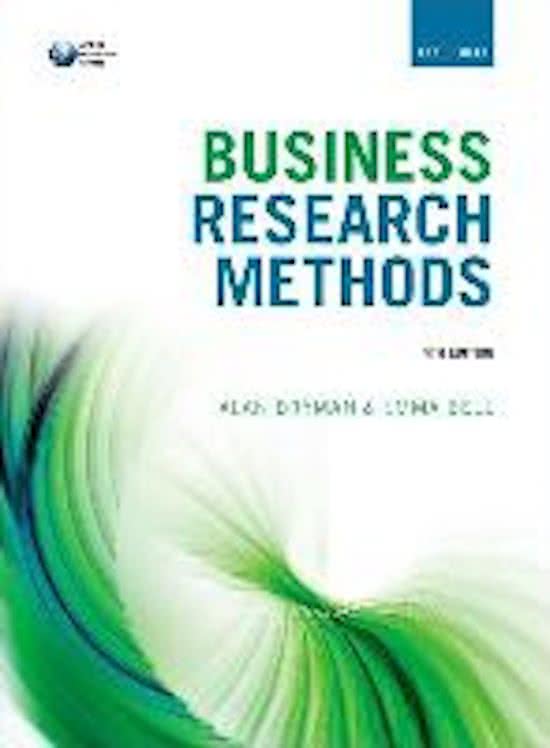Summary
Summary Logistics Management 354 Summaries
- Course
- Logistics Management 354
- Institution
- Stellenbosch University (SUN)
Very thorough summaries for the Logistics 354 test from the textbook Business Research Methods by Bryman & Bell, of chapters needed for the test (Chapter 1, 2, 3, 4, 5, 6, 7, 8, 9, 11, 12). Also incorporates notes from the mind maps & class notes
[Show more]




